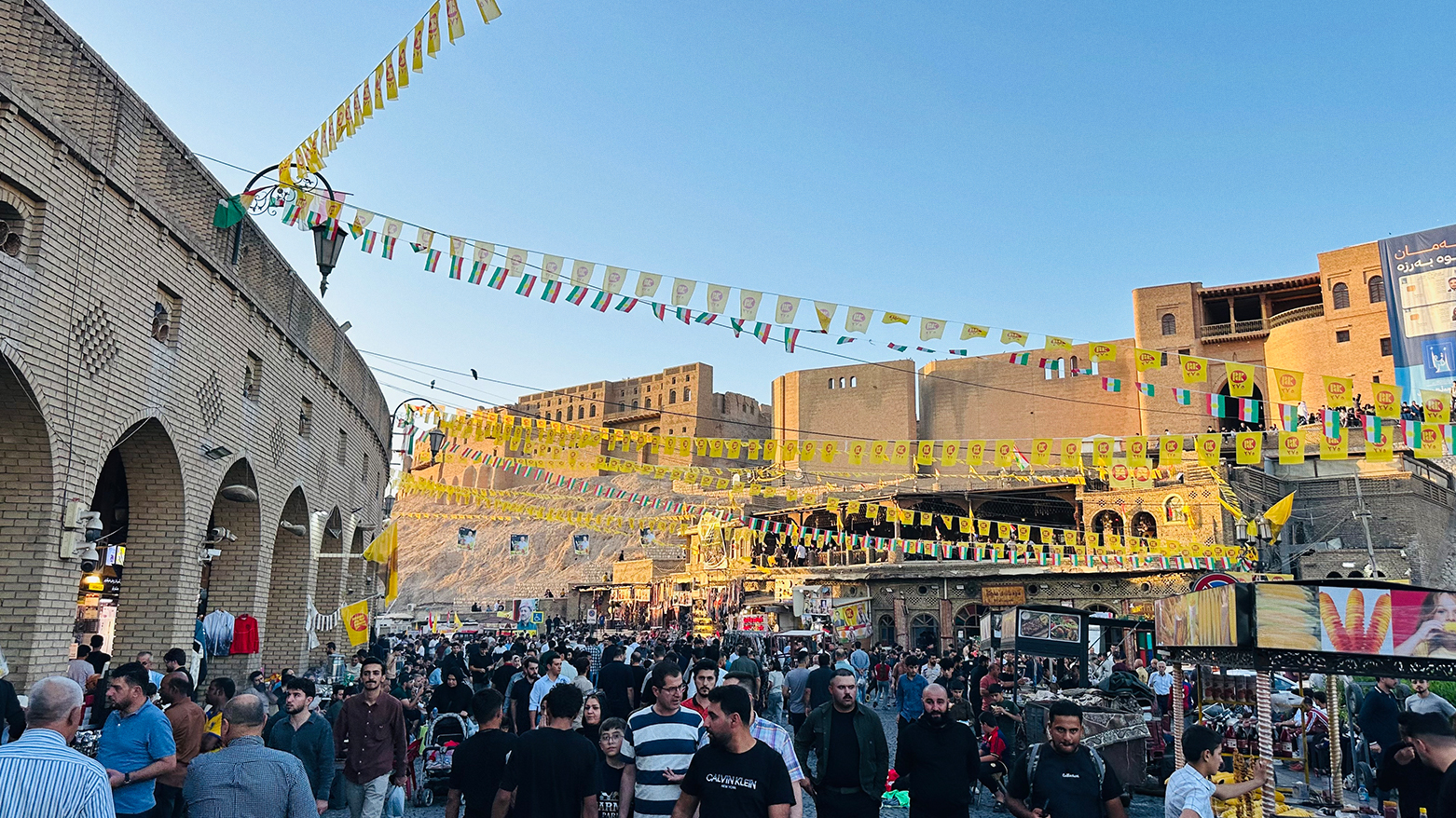‘A Government Cannot Be Formed in Baghdad Without the Kurds,’ Says Iraqi Analyst
The head of al-Dhaw Center, Dr. Abduljabbar Ahmed, states that no government can form in Baghdad without the Kurds, who act as the "balance scale" in Iraq's complex political equations.

ERBIL (Kurdistan24) – As the political temperature in Iraq rises with the approach of the parliamentary elections, a prominent Iraqi political analyst has underscored a fundamental and enduring truth of the post-2003 political landscape: no government can be formed in Baghdad without the active and essential participation of the Kurdish political parties.
Dr. Abduljabbar Ahmed, the head of the Iraqi al-Dhaw Center for studies, in a detailed television interview with al-Rabia TV Channel on Sunday, delved into the unique specificities of the election in the Kurdistan Region, framing the Kurdish role not as a marginal component, but as the historical "balance scale" in the complex and often fraught political equations of the Iraqi state.
Dr. Ahmed's analysis provides a crucial lens through which to view the ongoing election campaigns, moving beyond the local competition for votes to the high-stakes strategic positioning for the post-election negotiations that will ultimately shape the next federal government.
He emphasized that the electoral contest in the Kurdistan Region is distinct from that in other parts of Iraq, defined by a unique internal political dynamic and, most critically, by the nature of its complex and multi-layered relationship with the federal government in Baghdad.
Stressing a point that has been a consistent feature of Iraqi politics for over two decades, Dr. Ahmed stated unequivocally, "Since 2003, no government has been formed in Baghdad without the active participation of the Kurdish partners," who in the past were unified under the banner of the "Kurdistan Alliance."
This historical precedent, he argued, has solidified into a political maxim: "A government cannot be formed in Baghdad without the Kurdish component."
This reality places the Kurdish parties in a position of significant influence, transforming their electoral performance in the Kurdistan Region into a matter of national consequence for all of Iraq.
According to the head of the al-Dhaw Center, the main competition in the Kurdish electoral arena at the federal level is not, as it is for the major Shiite and Sunni blocs, for the post of prime minister.
While he noted that there is no constitutional obstacle that would prevent a Kurd from holding the premiership, the primary focus of the Kurdish parties is on two other critical levels of influence.
The first, he explained, is the competition to secure significant ministerial and sovereign posts within the federal government. This is the tangible manifestation of their partnership in the state, ensuring that the Kurdish voice is present and influential in the cabinet and in key state institutions.
The second, and equally important, level of competition is internal. The outcome of the federal election, and the subsequent division of posts and influence in Baghdad, has a direct and significant impact on the "division of executive and legislative powers within the Kurdistan Region itself."
In this sense, the federal election is also a crucial battleground for the internal balance of power between the major Kurdish parties, with the results in Baghdad often shaping the political landscape in Erbil and Sulaimani.
Dr. Ahmed also highlighted the historical and often decisive role that the Kurds have played as the "balance scale" in Iraq's political equations.
In a system defined by deep sectarian and ethnic divisions, the unified Kurdish bloc has frequently acted as the kingmaker, its alignment with either the major Shiite or Sunni coalitions often determining which bloc is able to form a government. This pivotal role has granted the Kurdish parties a level of influence that often outweighs their sheer numerical representation in parliament.
Furthermore, the head of the al-Dhaw Center clarified that the relationship between the Kurdistan Region and Baghdad is not a purely domestic affair but has significant regional and international dimensions that come sharply into focus during the government formation process.
"When the elections are over and the negotiations begin, international pressure and factors come into play," he explained.
He noted that while the post of the President of the Republic has, by political convention, been settled for the Kurds—alternating between the Kurdistan Democratic Party (KDP) and the Patriotic Union of Kurdistan (PUK)—the broader international community, particularly Western administrations, plays a significant role in shaping the final outcome.
"The Western administrations are always insistent on the formation of a comprehensive government that represents everyone," Dr. Ahmed stated, "and they emphasize the strength of the relationship between Kurds and Arabs."
This international insistence on a stable, inclusive, and cooperative government in Baghdad adds another layer of complexity to the post-election negotiations and reinforces the strategic importance of the Kurdish role.
This external dimension, he concluded, is "another of the specificities that distinguishes the region's election from others," making the Kurdish electoral contest a unique and closely watched process with implications that reverberate far beyond the borders of the Kurdistan Region.
